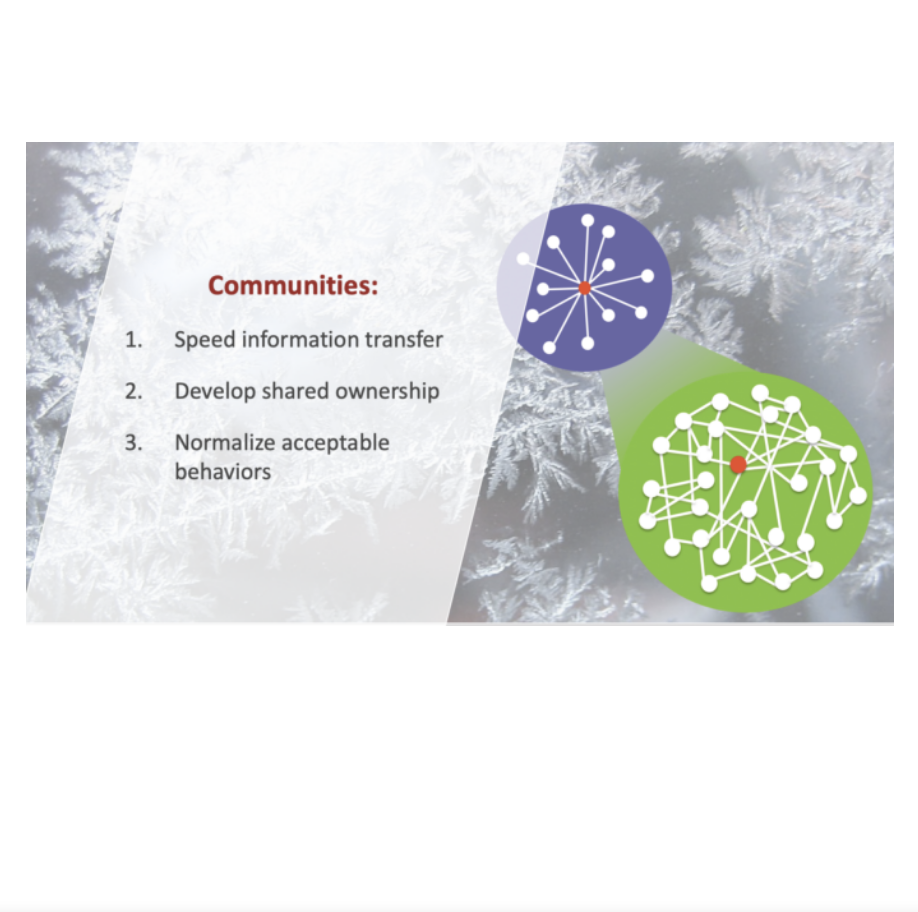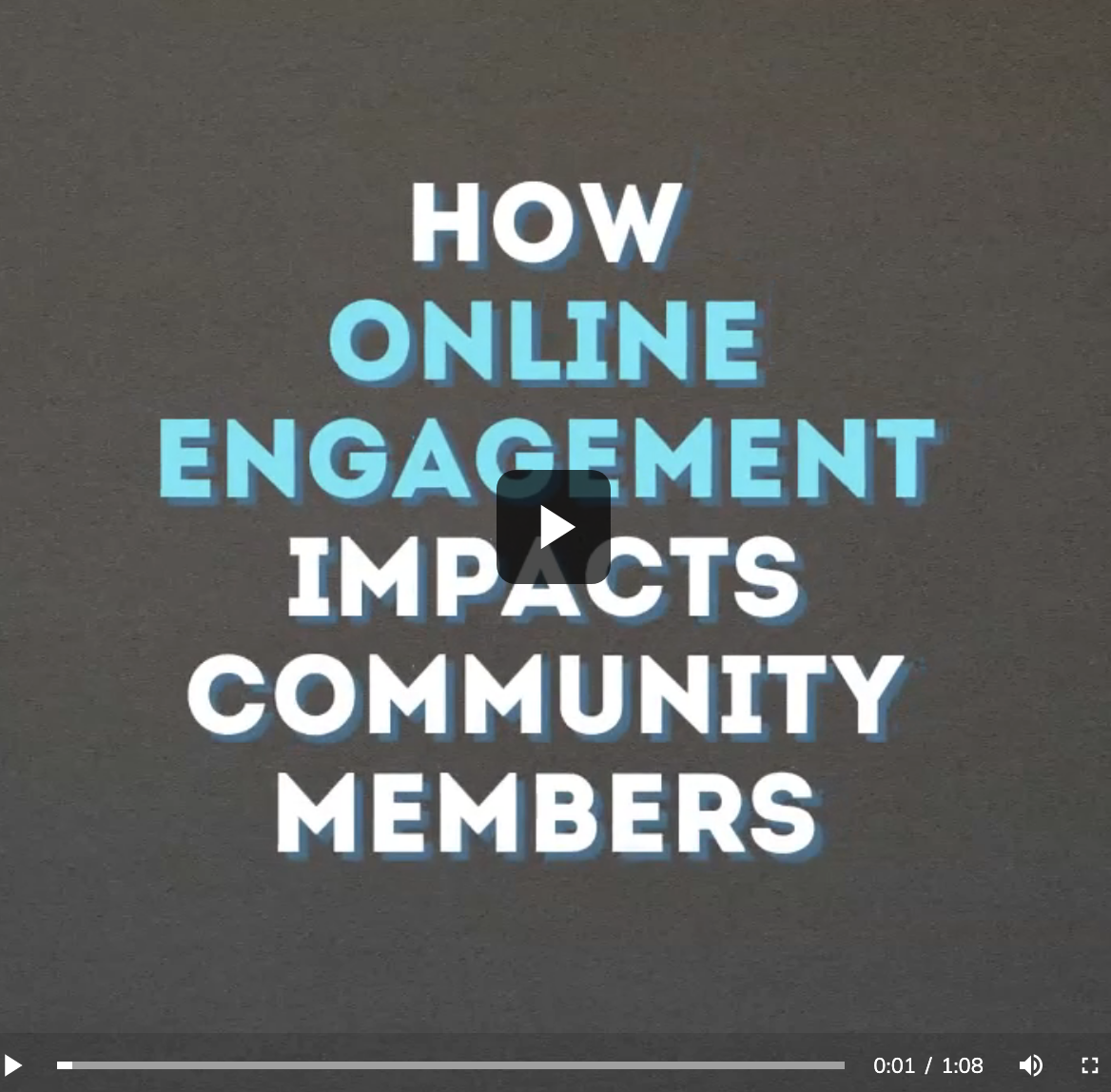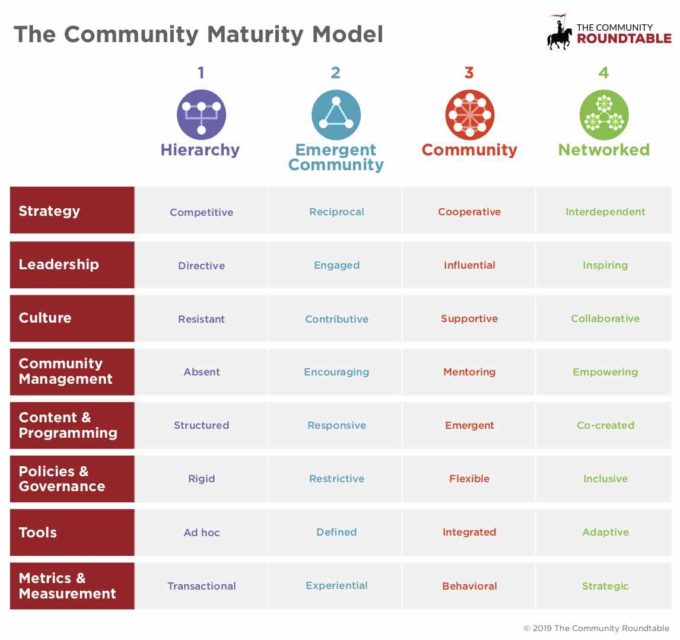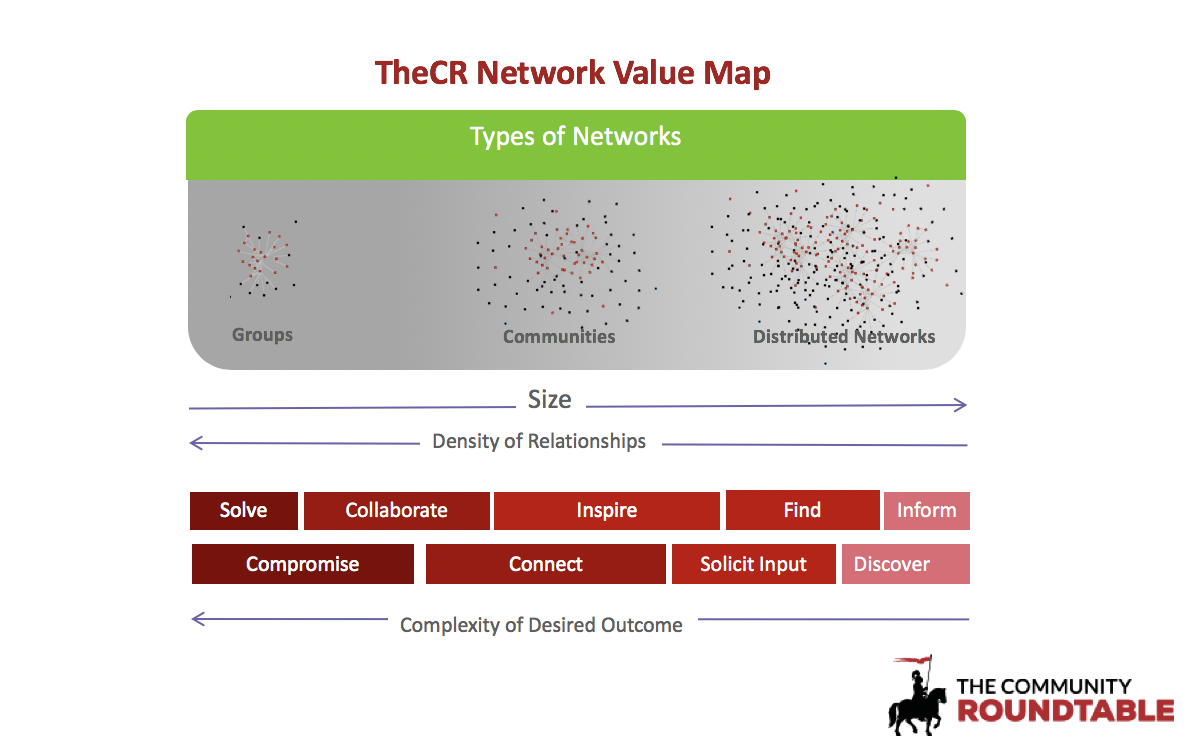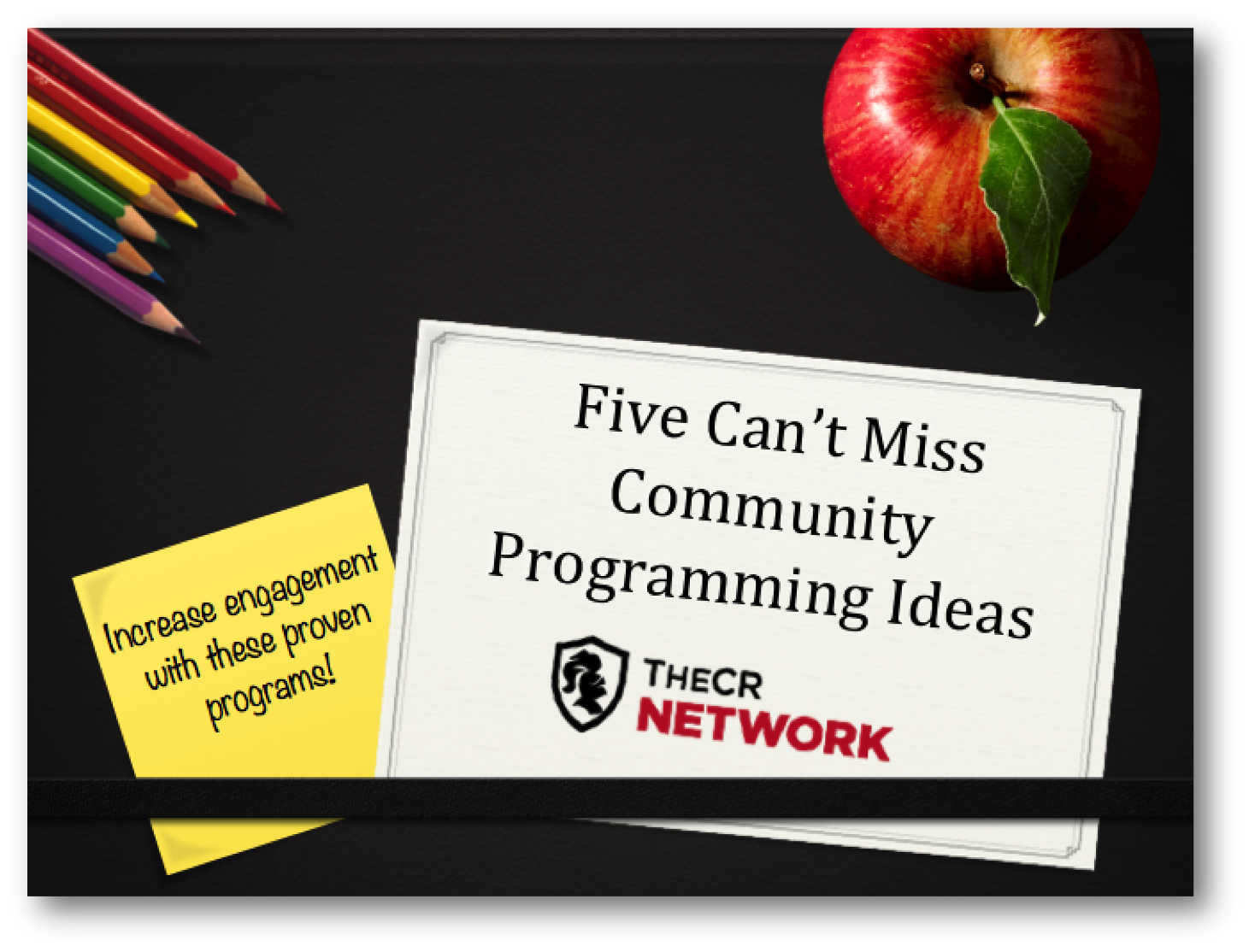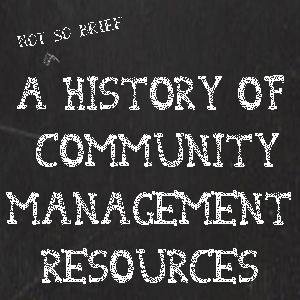Even as the discipline of online community management matures we still are often asked, "What is a Community?"
Our Definition of a Community: A community is a group of people with shared values, behaviors, and artifacts.
The research, benchmarks, frameworks and other materials developed by The Community Roundtable are primarily concerned with online communities.
There are two primary types of online communities.
Internal Online Communities
AKA Employee Communities
In most instances, there are typically four types of employee - or internal - communities:
- A community of practice, which focuses on knowledge sharing, typically has goals related to problem-solving, expertise location and development, expert recognition, and innovation.
- Collaboration communities focus on projects and team-based work, with goals related to business objectives, process integration, and value creation.
- Communities of interest focus on personal networks and their main goal is networking to strengthen weak ties and build relationships.
- Internal communications communities focus on initiatives and organizational goals, with goals focused on traditional internal communications initiatives like awareness, feedback, transparency, alignment, and morale.
External Online Communities
AKA Brand Communities
External communities, specifically those that address people outside of the organization, typically fall into FOUR categories:
- Communities of practice, which focus on thought leadership with goals of problem-solving, expertise development, and expert recognition
- Marketing/Brand Communities which focus on brand awareness and education, with goals of increasing brand awareness, prospect and lead development and acquisition
- Customer Support Communities which have problem-solving as the main focus, with goals of increased customer satisfaction, lower support costs, and shared ownership of support initiatives
- Innovation Communities that focus on ideation and collaboration, with specific goals around product development, prioritization improved product quality, and retention.
An Example
Communities assemble to share unique experiences or solve common problems. An example might be a local environmental group that comes together to raise awareness and money, take care of local open spaces and enjoy those open spaces. Within that community, there may be diverse interests and experiences. Some people participate primarily by enjoying the open spaces and occasionally contributing money and others with an intense interest in the health of trees or trails participate more substantively in those areas.
All successful communities have events that gather community members for discussion, celebration, or joint activities. A local example for us is AVIS - Andover Village Improvement Society. Typically communities are big enough that not everyone knows each other but small enough that everyone feels some personal responsibility to contribute.
A Business Example
TheCR Network is our community for community management and social business leaders who are working to foster better relationships with their organizations' customers, employees, and partners. They have a shared goal of making business communities successful. Also, they share the experience of being one of the few individuals in their organizations to understand how business and management are changing because of new technologies.
TheCR Network members talk about common challenges like member engagement, executive support, business planning, ROI, and community maturity. They use a similar suite of tools to achieve their goals: collaboration software, social media networks, editorial calendars and more. They come together on a weekly basis to help each other make progress via live calls, and support each other daily in their private community space.
You can learn more about types of online communities of practice here.


